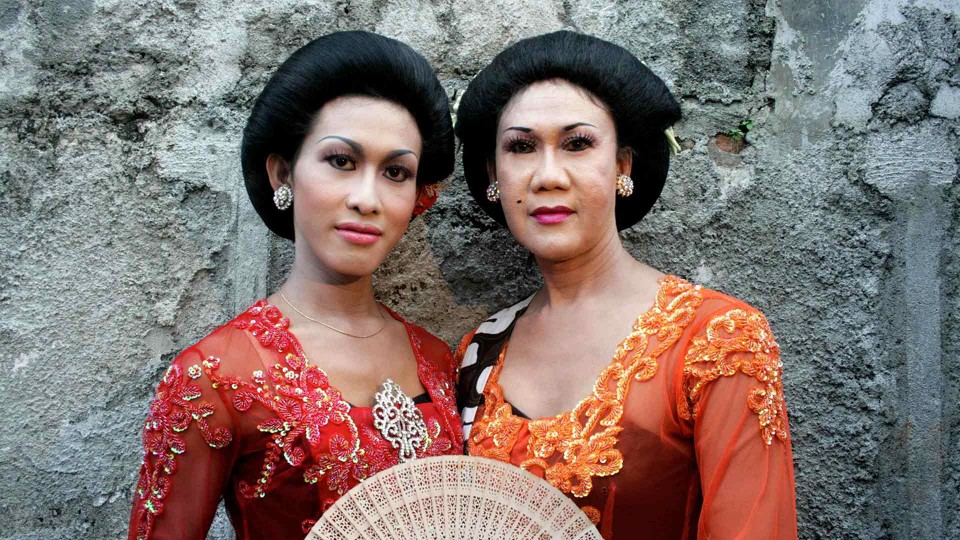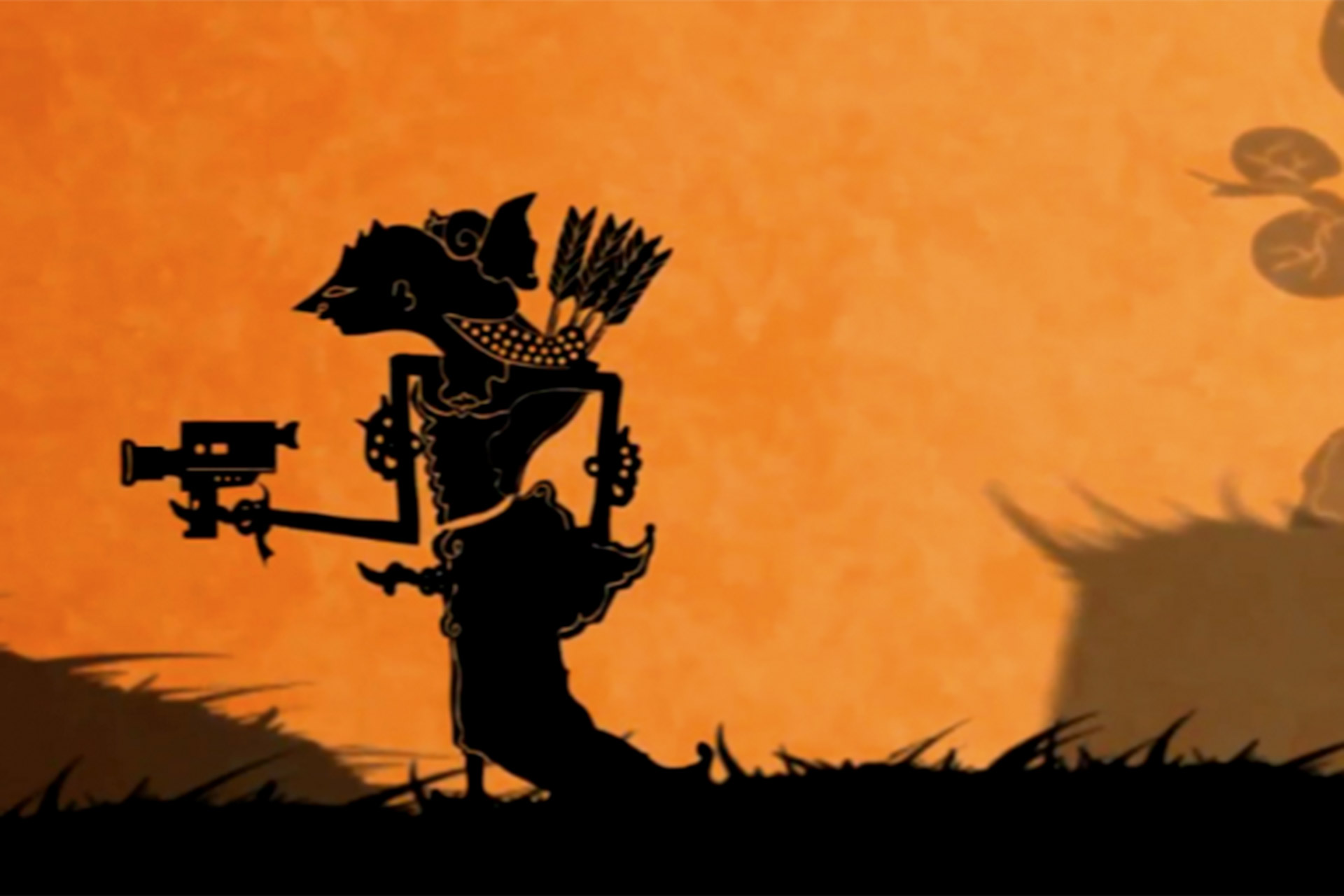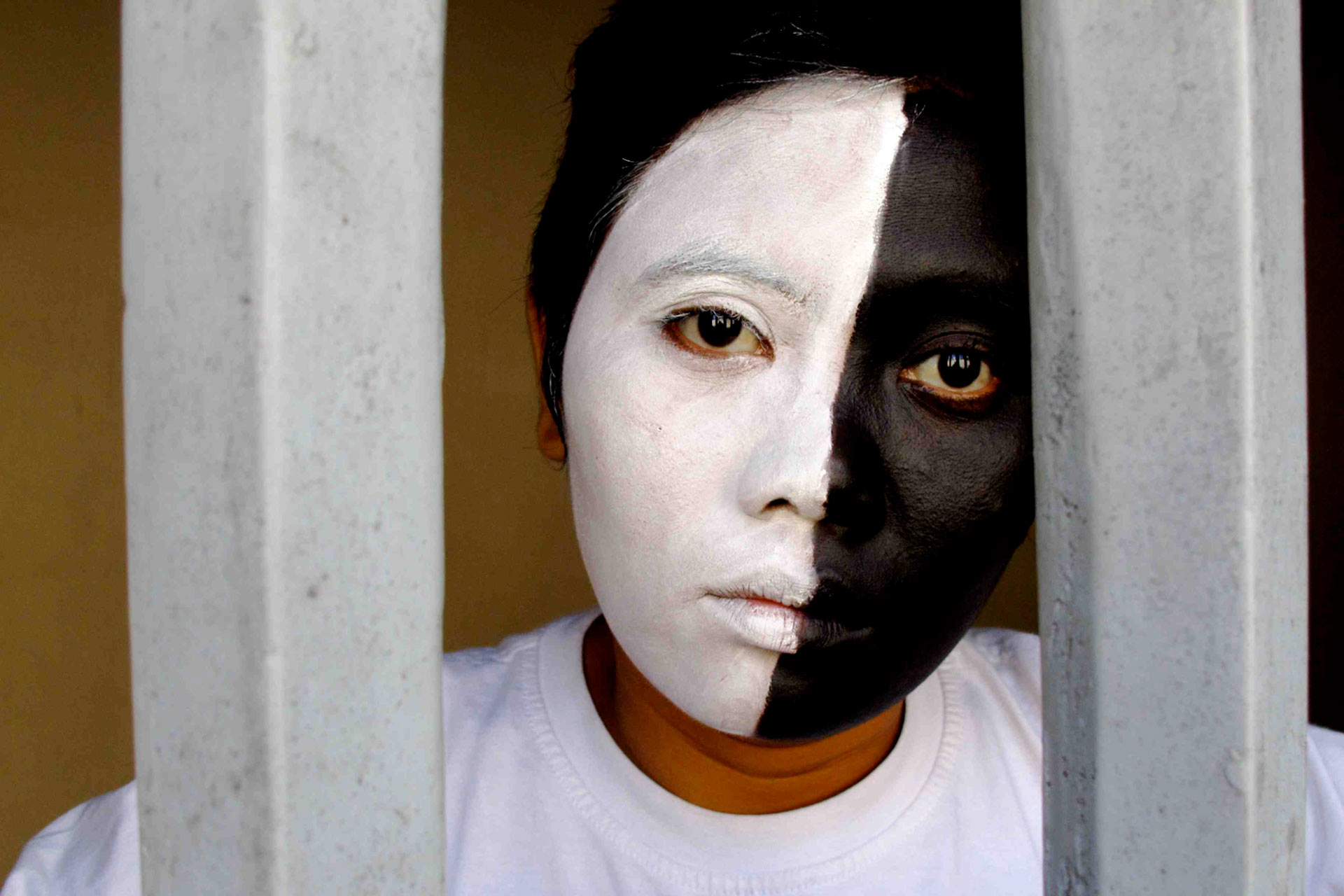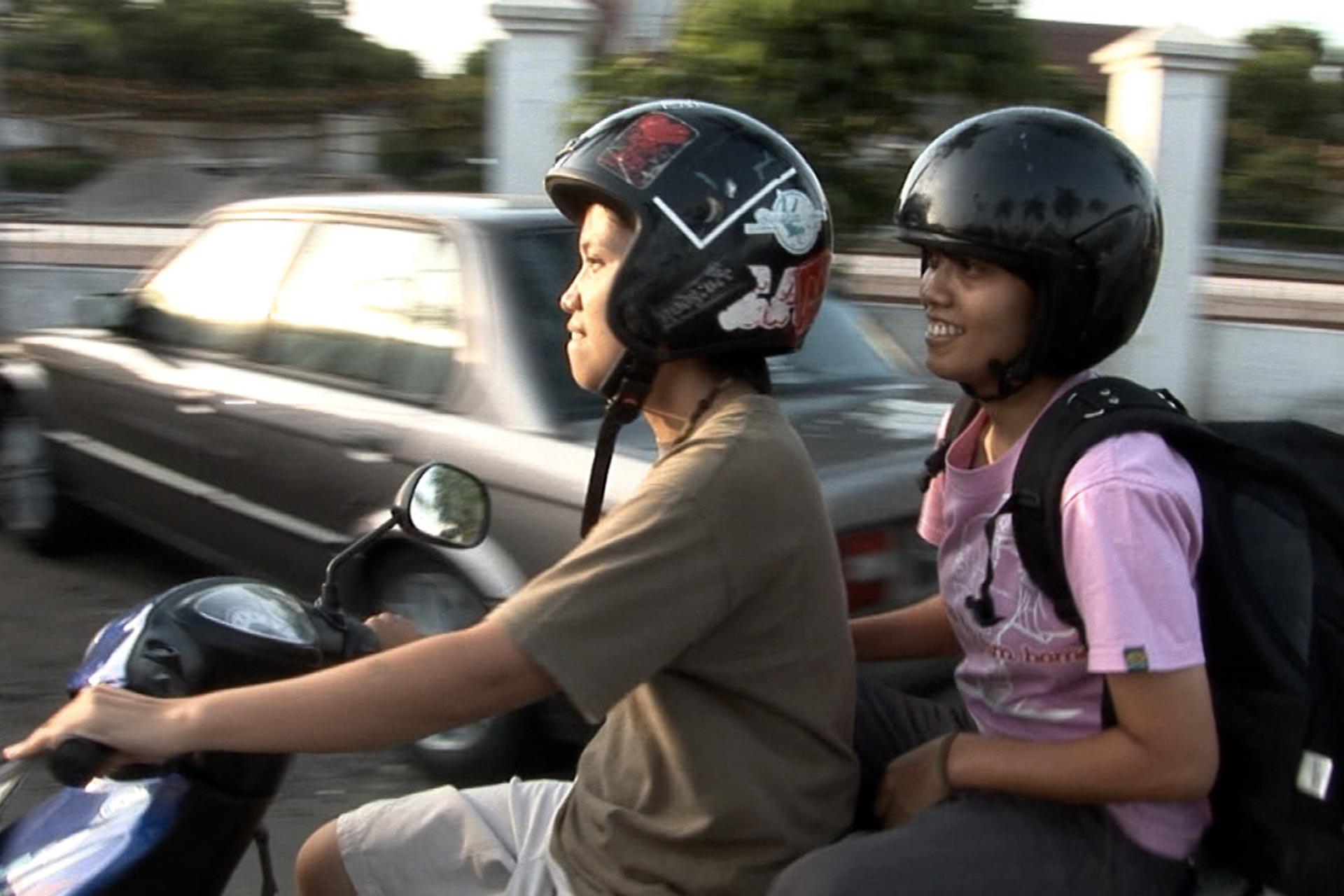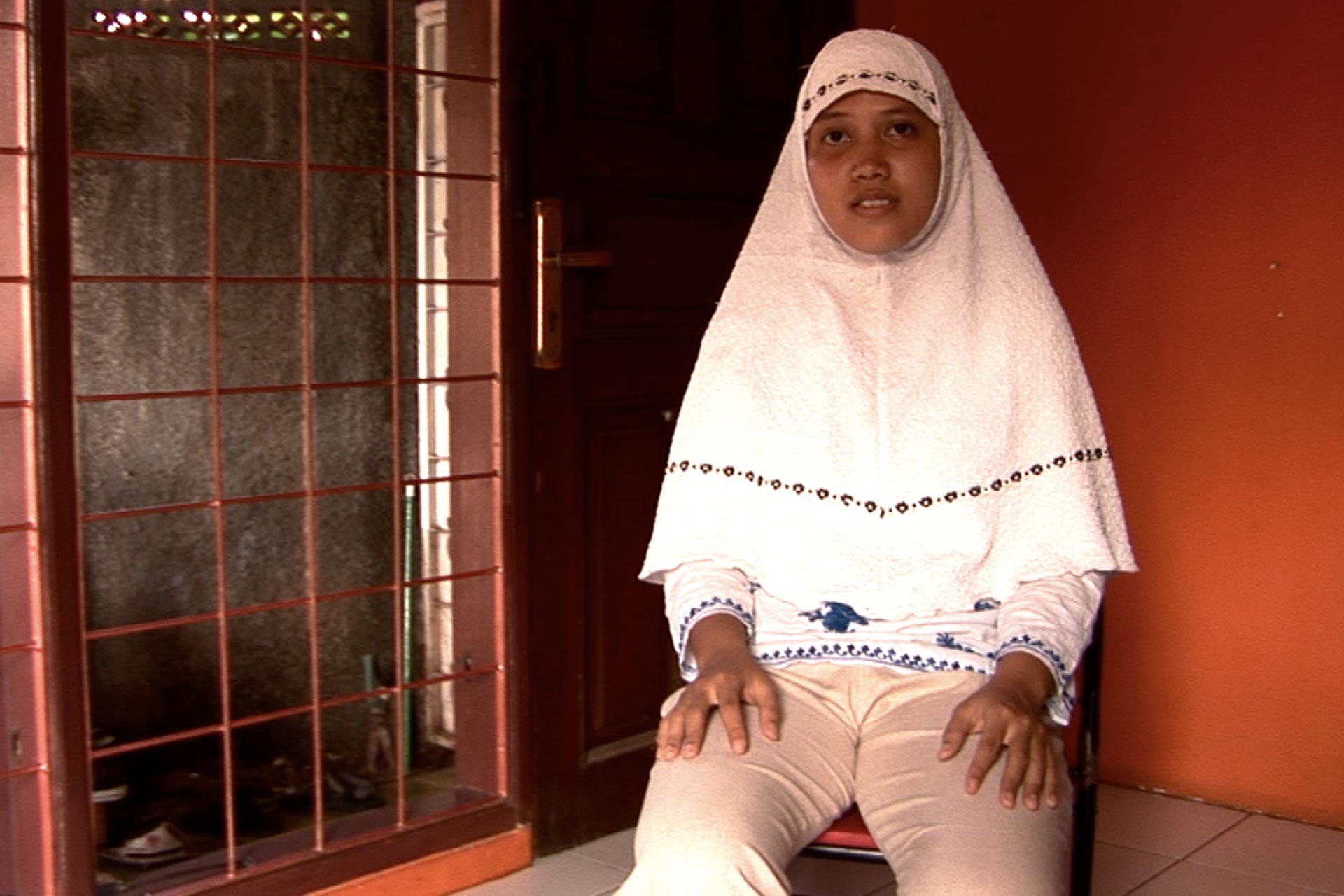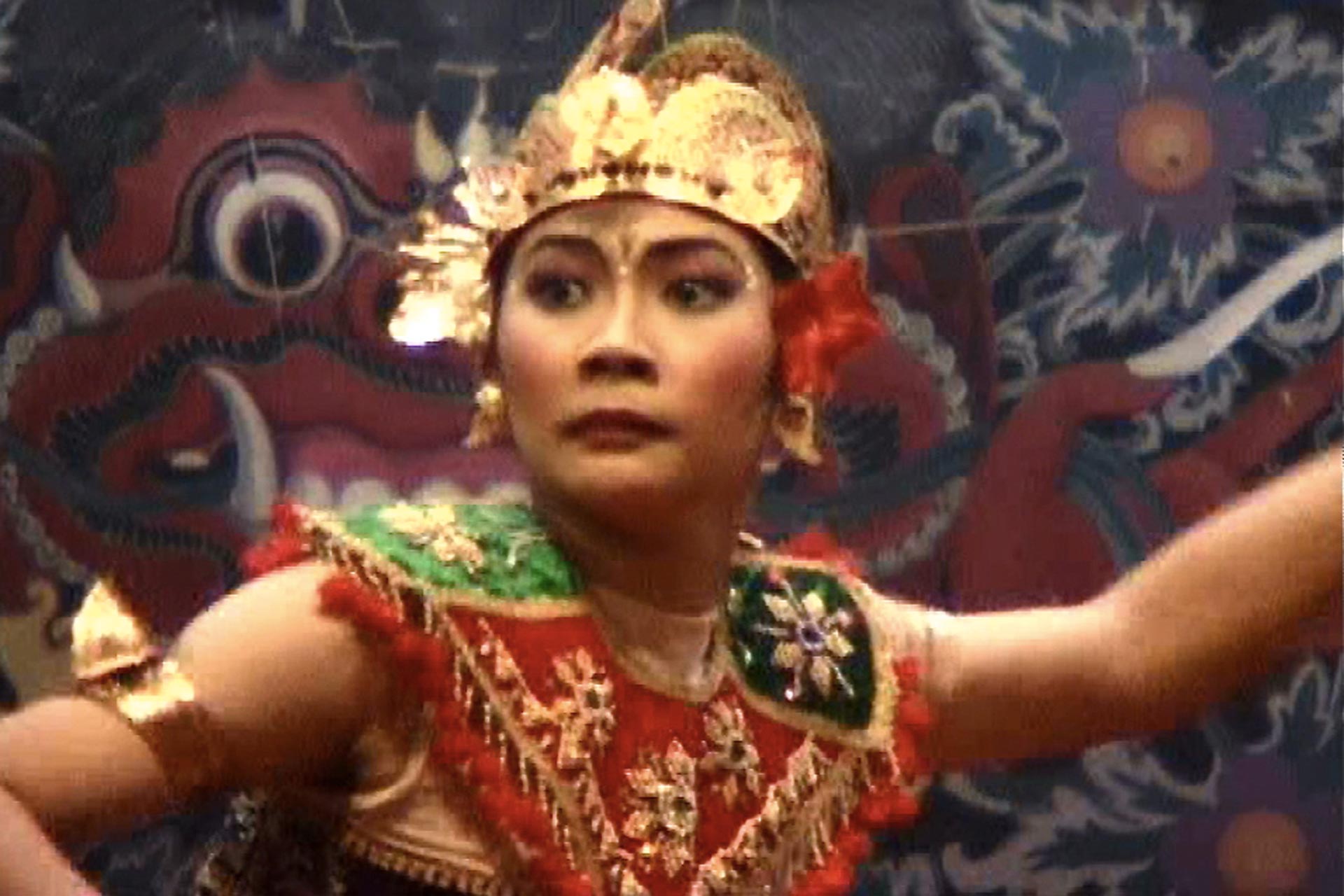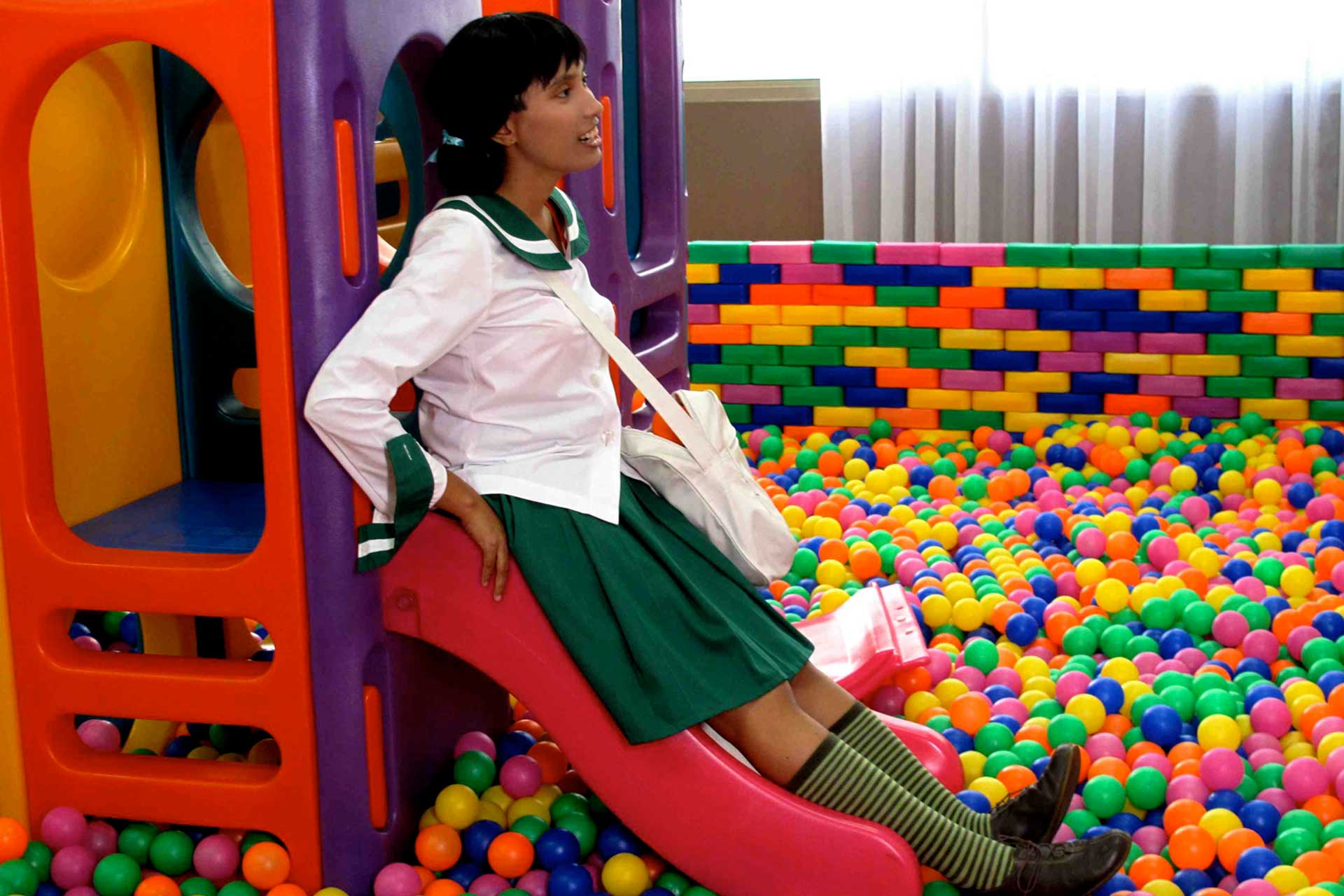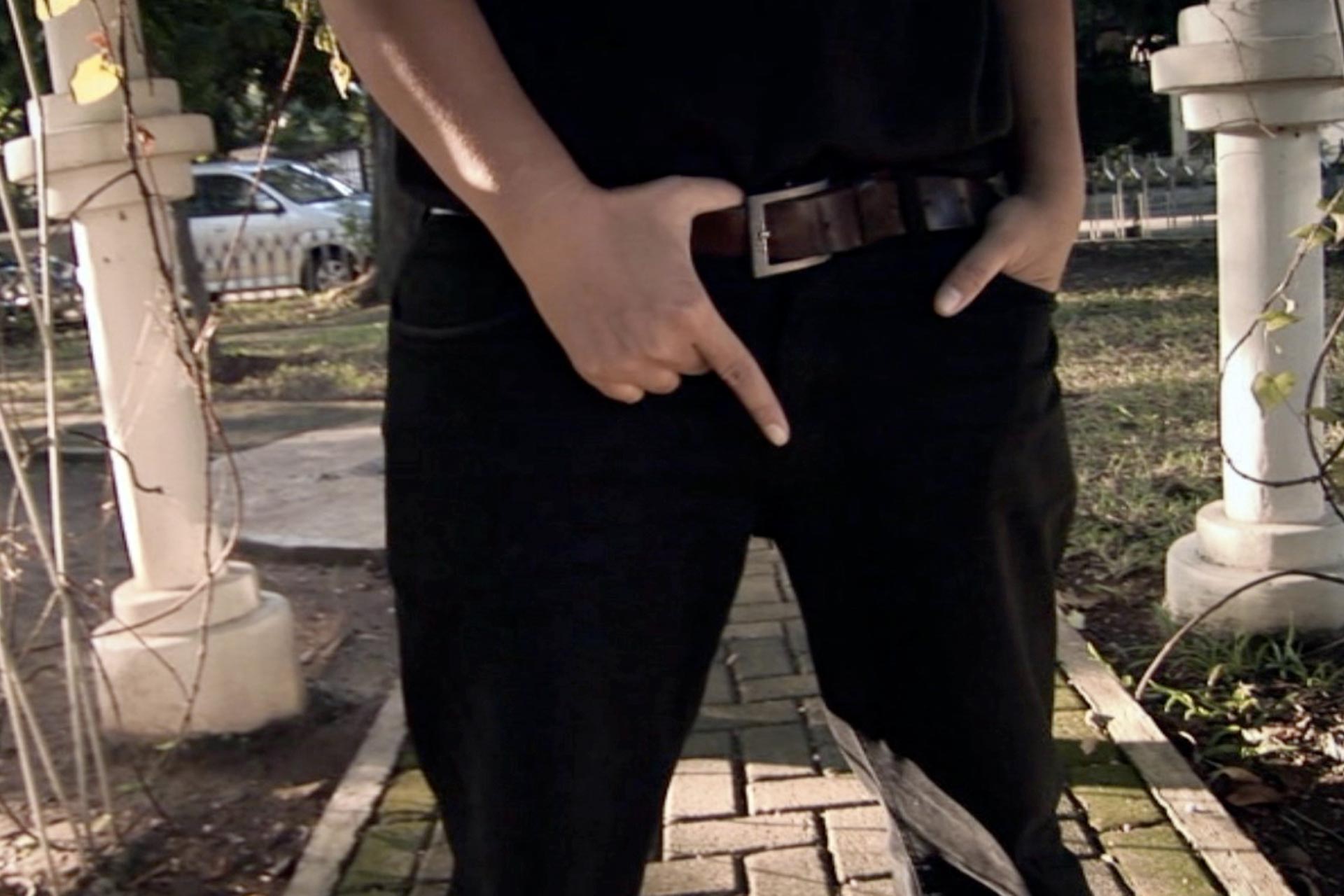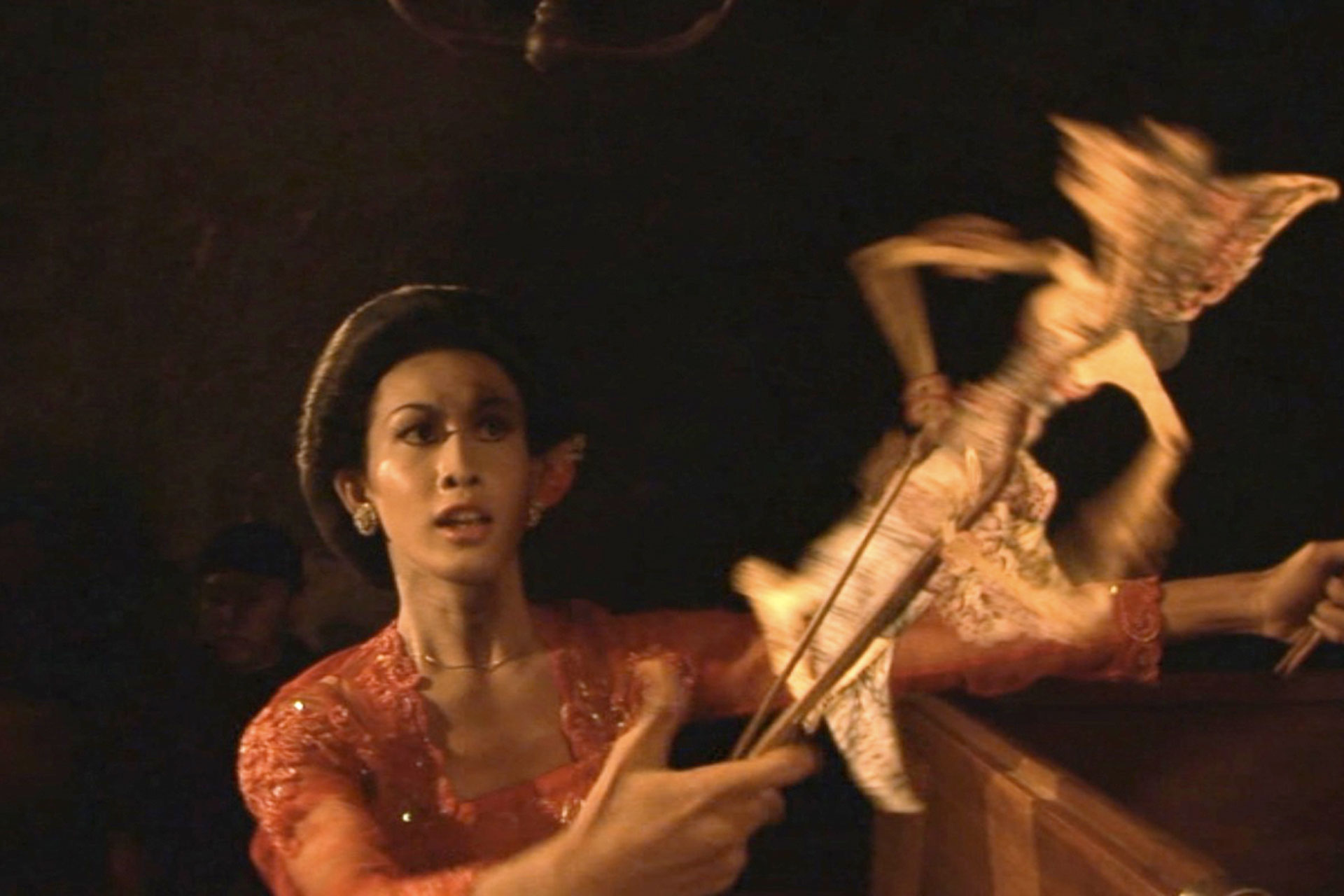The Children of Srikandi
Year
2012
Country
Indonesia
Switzerland
Germany
Technique
Digital
Length
75′
Children Of Srikandi (Anak Anak Srikandi) is the first film about queer women in Indonesia, the most populous Islamic country in the world. Eight authentic and poetic stories are interwoven with beautiful shadow theater scenes that tell the story of Srikandi, one of the characters of the Indian Mahabharata. The collective anthology transcends the borders between documentary, fiction and experimental film.
All women collectively worked as a crew or actress in each other’s film. The individual stories range from observational documentary and concept art to personal essay.
A little girl dreamt to be a boy. A bench becomes home and life witness. A house does not feel like home anymore. A veil makes you reflect about religion and sexuality. A verse of a poem is like a day in your life. A Love can be in between. A female stereotype can be deconstructed. A label can be changed.
The common thread is both the radical personal perspective of the filmmakers and the appearance of the same persons in different roles in the short films of the others. From the beginning to the end, change is possible on all levels of the film: personal, political, and formal. Transformation is always inscribed in the narrative. Form and identity are fluid; perspectives are shifted.
These moving stories are interwoven with the tale of Srikandi that serves as the framework plot. Srikandi is an ancient mythological character of the Mahabharata, a well-known Indian epic. Even today Srikandi is still frequently used in the traditional Javanese shadow puppet theatre plays (wayang kulit). Srikandi is neither man nor women, fluently moving between both genders. Falling in love with a woman she has to understand that the only way to survive is to become a “female warrior”. Her story reminds us that same-sex love and gender variety were not imported from the West but in fact form a deep and ancient aspect of Indonesian society.
Soleh (25), the puppeteer and Anik (59), the singer, are both male to female transgender and work since many years as wayang kulit performers in Surabaya, East Java. In the film Srikandi is embodied and represented by them as an inverted mirror image. The narrative of the wayang kulit play moves from fiction to documentary and from the past into the present.
All started with a workshop. The idea was to collaborate on a film project that reflects on the director`s lived experiences as queer women in Indonesia and at the same time provides them with the means for filmic self-representation. They were introduced to creative story telling and basic sound and camera operation. Over a period of two years the filmmaking became a true collective act.
Angelika Levi´s Statement on „Children of Srikandi“ 2/2012
At the beginning of 2010, Laura Coppens asked me if I would like to direct a film workshop for young Indonesian lesbians in Jakarta over the summer. The idea was to make an omnibus film with six to ten women presenting their personal experiences by means of autobiographic short films. Our first joint meeting took place in Jakarta. Some of the women came from Yogyakarta or Bandung. All of them brought different social and religious backgrounds. Most of them had never met before.
We spent the first weeks of the workshop watching hand-picked documentaries and short films. We discussed different topics: gender, ideology, religion, memory and class. The women began to develop their proper ideas. We worked on the dramaturgic emphasis and narrative style of each tale and developed different narrative strategies.
It was amazing for me to see social and religious borders vanish right from the beginning, while commitment and true interest in the other women’s experiences arose. Although most of them had never worked with film before, it was quite easy for everybody to get used to the technique, do the acting and transform personal experience into the medium of film.
The fact that the project turned into a complete film is due to a collective process which coordinated the group’s social intelligence with real economic working conditions.
Right from the beginning, we had the idea to combine the autobiographic material with the story of Srikandi, a character of the Indonesian puppet theatre Wayang Kulit. The puppeteer Soleh gave his voice to Srikandi, while the singer Anik expresses the character’s emotions. As transgender queens they reinvent themselves within the classic Indonesian perception of women, while the short films de-construct the classic picture.
It is the opposed representation of gender that creates an impression of a fluid, oscillating advancement of the film. An unspectacular linguistic and religious diversity is revealed: The original languages are Indonesian, standard Javanese, high-Javanese and Sundanese. The religions involved are Muslim, Christian and Buddhist. Anak-Anak Srikandi addresses the possibility to change. The film’s narrative structure does not always allow for a clear division of the films but works as a whole. Despite the different lengths of the films and the genres chosen there is no hierarchy. The assembly is based on an associative logic.
While I joined this project as a teacher, I also learned something new during the process. We developed a way of working which I had never experienced before and which you might call a non-hierarchical pulling-together beyond all difficulties. All filmmakers and producers of the „Children of Srikandi Collective“ possess the same rights on the film.
By Children of Srikandi Collective
With: Agustine, Yulia Dwi Andriyanti, Hera Danish, Dewi Srikandi, Dewi Larasati, Eggie Dian, Elok, Stea Lim, Afank Mariani, Oji, Mia Rabbit, Sofia Setyorini, Imelda Taurinamandala, Teeza, Uji, Uta, Winnie Wibowo, Wulan, Butch Re; Imelda Taurinamandala (Hello World), Eggie Dian (Jlamprong), CoS Collective (Via Skype)Oji (Acceptance), Yulia Dwi Andriyanti (Edith´s Jilbab), Winnie Wibowo (A Verse), Hera Danish (In Between), Stea Lim (Deconstruction), Afank Mariani (No Label) Laura Coppens and Angelika Levi; Wayang Kulit Puppeteer- Ki. Suci Soleh; Singer: Ning. Anik Juwana; Karawitan Musicians- Gender & Demung: Joko Narwono; Kendang: Saptono; Saron Sandi: Kaca Sadewa; Gong/Kempul: Maryono; Original Music by: Yacko; Jean Philippe Coppens; Produced by Laura Coppens & Angelika Levi; Executive Producer Stea Lim; Production Manager Lely Cabe; Concept by Laura Coppens; Cinematography Angelika Levi, Oji, Faozan Rizal; Sound CoS Collective; Edited by Angelika Levi; Animation Fety Fithriya; Sound Design and Mix Erik Mischijew; Color Correction Matthias Behrens; Location Manager Lely Cabe; Workshop Instructors Angelika Levi & Laura Coppens; Workshop Coordinator Sofia Setyorini; Translators Javanese Emy Dwi Lestari, Wishnu Sudarmadji; Translators Bahasa Indonesia Stea Lim, Imelda Taurinamandala; Advisors Agustine, John Badalu; FPI Footage Courtesy of Lucky Kuswandi, Ucu Agustin; produced by Srikandifilms & celestefilm.
Funding Generously Provided by Stiftung Umverteilen, Global Fund for Women, Manfred Durniok Foundation, The Society of Indonesian Film Foundation: in-docs & Jakarta International Film Festival, University Research Priority Program Asia and Europe, University of Zurich.
Premiere: 62. International Film Festival Berlin / Panorama.
Awards: Winner Jury Award for best documentary / Identities Queer Film Festival / Wien. Winner Diversity and Human Rights Award Zinegoak, Bilbao International GLT Film and Performing Arts Festival.
–
